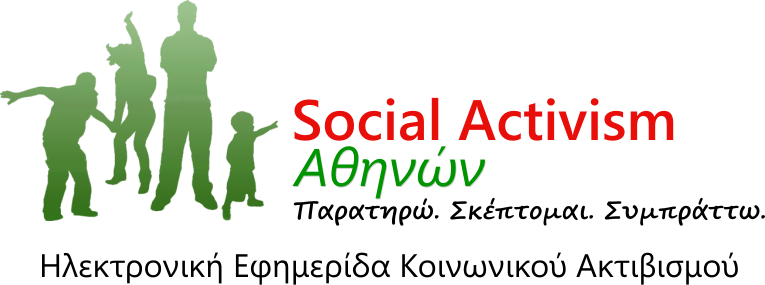Republished in SocialActivism.gr of Athens.
Edited by Katerina Nakou
Published in BBC
Ordinary Greeks are finding ways of fighting back against endemic levels of corruption in their country, with a number of websites now allowing people to report cases of bribery.
Kristina Tremonti’s first brush with “fakelaki” came when her grandfather needed urgent treatment at a public hospital in Kalamata, southern Greece.
Treatment is supposed to be free. Fakelaki is the Greek term which means “little envelope”, but has come to describe a wide range of bribery. It is pronounced “fakk-el-akee”.
“He’s actually a war veteran and he was diagnosed with terminal prostate cancer,” she said.
“One night he had incessant bleeding and we had to rush him to hospital. We were faced with absolute negligence. Nobody gave us the time of day – they were very disrespectful and basically ignored my grandfather.”
“We sort of picked up the cue that they were expecting a bribe, so as soon as my mother reached into her purse and gave them the amount – which I believe now was 300 euros (£240; $395) – he was submitted to the operating room within an hour.”
The experience traumatised her to such an extent that, even though she was studying at university in the US, she became determined to discover how widespread the practice was in Greece.
Inspired by similar websites in India and Kenya, Kristina set up edosafakelaki (meaning “I paid a bribe”) which allows people to report anonymously on cases of bribe-giving or taking, or indeed cases where bribes were refused.
Rooting out corruption will allow for social and economic recovery”.
“In the beginning, people were surprised to see the stories they were previously only hearing at dinner tables or with friends,” she says. “But now I really believe there is a pan-Hellenic attitude of civic duty growing.”
In a little over a month, 1,000 different reports of bribery appeared on the site, spurred on by chatter on social media sites.
“People are frustrated, they’re angry, they feel cheated, they feel abused. They feel they have been threatened by a system that has rendered them powerless in front of it.”
Anger has been spurred on by the severity of the financial crisis and the impact it has had on people’s lives. Over a quarter of Greeks are unemployed. Many can no longer afford the relatively small-scale bribes which were previously accepted as a way of life.
Horror stories abound on the website – 60% of the entries relate to corruption in the public health system, 15% to bribes paid to obtain driving licences, and 4% to the issuing of building permits. Entries are also broken down by region of Greece, and often individual institutions are named, so there are many clues for authorities to follow if they wish.
One person wrote:
“My father had cancer and had to have an operation on his pancreas. The surgeon asked indirectly for money, and before surgery I put 500 euros on his desk. From his expression I could see it wasn’t enough. My mother insisted that we pay him more. Oh, and there was something else too! My father noticed all the expensive houses across the road from the hospital, and the nurse told him they were the doctors’ houses. “You know what we call them?” The nurse said, ‘Bribe Ville’.”
Five stories of corruption
- “Every Christmas at my work the tax people show up. They perform an audit and they always find something wrong. At the end of it all they want a little Christmas gift – between 5,000 and 10,000 euros. Dudes! Now because of the crisis, my boss is not going to pay any more. Let them close us down instead!”
- “I set up a new hotel and someone from the Ministry of Tourism was asking for 10,000 euros for a permit to operate. We haggled, and in the end they dropped it down to 4,000 euros.”
- “I won a public works contract through an open tender. I met the local mayor and he proposed giving me another works contract. But he tells me straight – you get 2,000 euros, and I get 8,000 euros. Well, I was really disillusioned and I wasn’t having any of this. So the mayor gave the contract to another company instead.”
- “My driving school teacher told me that if I wanted to pass the driver’s test . I had to give 200 euros to the examiners, otherwise they would fail me. I asked him what I should say if they had any technical questions about the car’s mechanics. He said, ‘Just tell them there’s 200 euros under the hood and they’ll get the message’.”
- “My child was severely injured and needed surgery immediately. They told me the procedure would be extremely difficult and that they were not being paid enough for a procedure of such complexity and challenge. Each of the three surgeons came up to me and demanded fakelaki of 2000 euros, forcing me to ask for a bank loan because I didn’t have enough money to fund them. This phenomenon must stop!”
